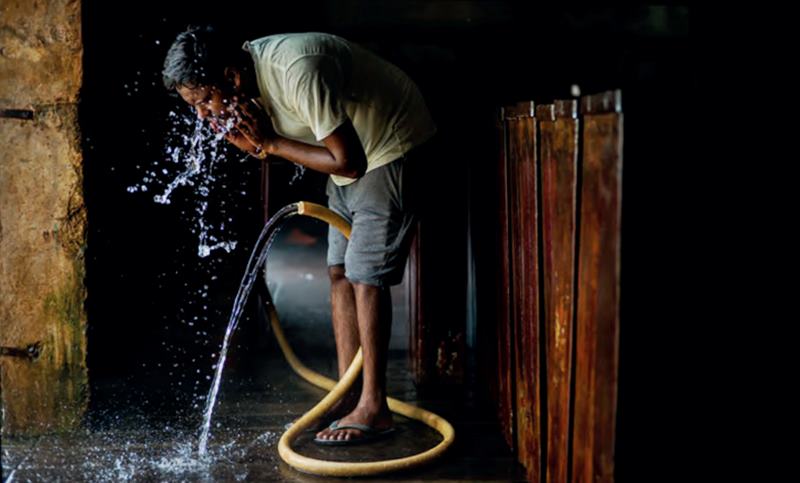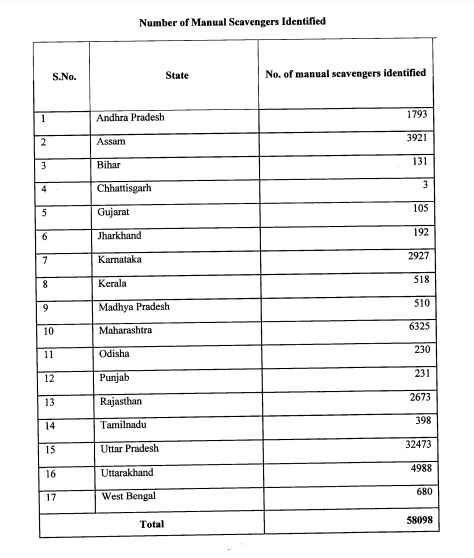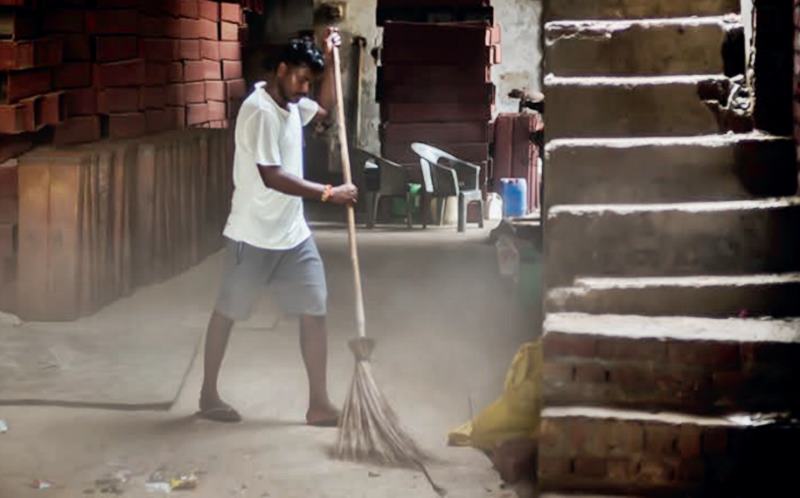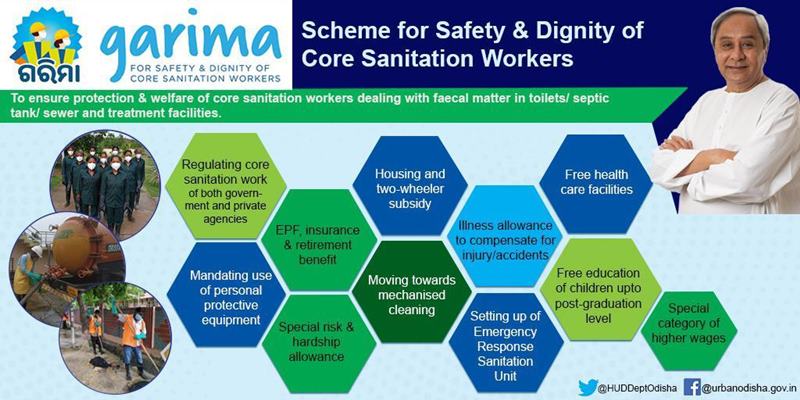World Toilet Day: ‘Livelihood a bigger concern for sanitation workers than personal safety’
A WaterAid report on the plight of India’s marginalised sanitation workers during the COVID19 pandemic reveals that earning a living to support their families is far bigger a worry for them as compared to their personal protection. The report found that about four out of 10 sanitation workers in India faced challenges in meeting their daily needs due to loss of income during the pandemic. Details here.


Photo: WaterAid/Anindito Mukherjee
A report published today on the occasion of World Toilet Day, has highlighted that the COVID19 pandemic has worsened the already miserable condition of sanitation workers in the underdeveloped and developing countries of south Asia and Africa.
The report titled, ‘Sanitation workers: the forgotten frontline workers of the COVID-19 pandemic’ has been published by WaterAid, an international non-governmental organisation that focuses on water, sanitation and hygiene. The report includes case studies of sanitation workers from India, Pakistan, Bangladesh, Nepal, Nigeria, Tanzania, and Burkina Faso.
“Despite the risks, the biggest concern for workers during the COVID-19 pandemic was being able to financially provide for their families. Two in five respondents in the WaterAid study (44%) said they faced challenges in meeting their daily needs due to loss of income,” the report stated.
Also, it informed that 40 per cent of the interviewed sanitation workers in India lacked handwashing facilities at home.
Also Read: The sanitation workers are on the frontline, but we didn’t tell them how to manage biomedical waste
In its remarks on the condition of sanitation workers in India, the report mentions that none of the sanitation workers it interviewed working in hospitals had all the types of protective clothing needed to perform their job safely. The report is based on interviews with 95 sanitation workers from government hospitals across Telangana, Odisha, Chhattisgarh, Madhya Pradesh, Gujarat, Rajasthan, Uttar Pradesh and Bihar.
Also Read: Give us work for wages, demand former manual scavengers in UP’s Jalaun

Meanwhile, responding to a question by Communist Party of India’s Binoy Viswam in the Rajya Sabha August 4, 2021, Virendra Kumar, Union Minister of Social Justice and Empowerment stated that 941 workers died while cleaning sewers / septic tanks in the country since 1993.
Also Read: We must help our sanitation workers who are crucial in this battle against coronavirus
“Those engaged in manual scavenging and other sanitation work regularly face widespread social and systemic discrimination and are denied fair access to education, healthcare, social security benefits, land, housing and jobs,” report mentioned while showcasing two cases studies of sanitation workers from India.
Discrimination, inaccessible opportunities
In one of its case studies on a sanitation worker in India, the WaterAid report showcased that the lack of social mobility amongst the sanitation workers keeps the underprivileged from accessing safer and more rewarding occupations.
It showcased the life challenges of 26-year-old Vishal Jeenwal, a sanitation worker who sweeps streets in Ghaziabad’s Loni area.
The report stated that his family has been involved in manual scavenging for generations and despite graduating with a degree in social sciences from University of Delhi in 2018, he’s been unable to secure alternative employment because of societal and structural stigma. He belongs to a Scheduled Caste, known for its underprivileged social status.
“The pandemic has been very hard for him because the market closed during both lockdowns, and he was left jobless. He received Rs 1,000 from the Indian Prime Minister’s fund but has been surviving mostly on a small pot of savings,” it stated.

Vishal has tried to use his degree to find office work, but as soon as his employers discover his caste, his job quickly becomes untenable.
“They would taunt me for not knowing how and when to serve water and tea,” says Vishal, who struggled for months in one role; “they said that someone like me could never succeed in any other job [other than sanitation work]. I tried several other jobs after that, but nothing clicked,” Vishal is quoted in the report.
“Finally, out of desperation I went back to doing what I’d seen my family do all their lives – cleaning,” he added.
The 26-year-old often spends sleepless nights lying awake and worrying about his future.
He currently works three days a week while he studies for his civil service entrance exams. “Sometimes I lie awake at night worrying about my future,” he says. “Will I sweep the road for the rest of my life if I don’t get a government job? It’s a scary thought,” Vishal said.

‘Sanitation workers’ woes getting attention but ground situation yet to change’
Meanwhile, VR Raman, Head of Policy, WaterAid India told Gaon Connection that the issues of work safety and social marginalisation of sanitation workers have been getting substantial attention in recent years but the ground conditions are far from better.
“The attention on these issues is coming up in government policies and programs and it is coming up as an agenda but the ground situation needs to change a lot,” Raman said.
The NGO official, however, praised the policies of the Government of Odisha in tackling the miserable condition of the socially backward communities who depend on sanitation as a means to sustain their livelihoods.
“One of the biggest advancements for the sanitation workers in India has been done by the Odisha government under the Garima scheme. They have defined core sanitation workers and have assigned them as a skilled professional category and fixed their minimum wages,” he said.

“The government also ensures that if a private entity is hiring these workers, the insurance facilities, healthcare benefits, and minimum wages are entitled to these workers,” Raman added.
The WaterAid official added that other states are also trying to implement such welfare schemes for sanitation workers but so far Odisha has been most successful in doing so.

